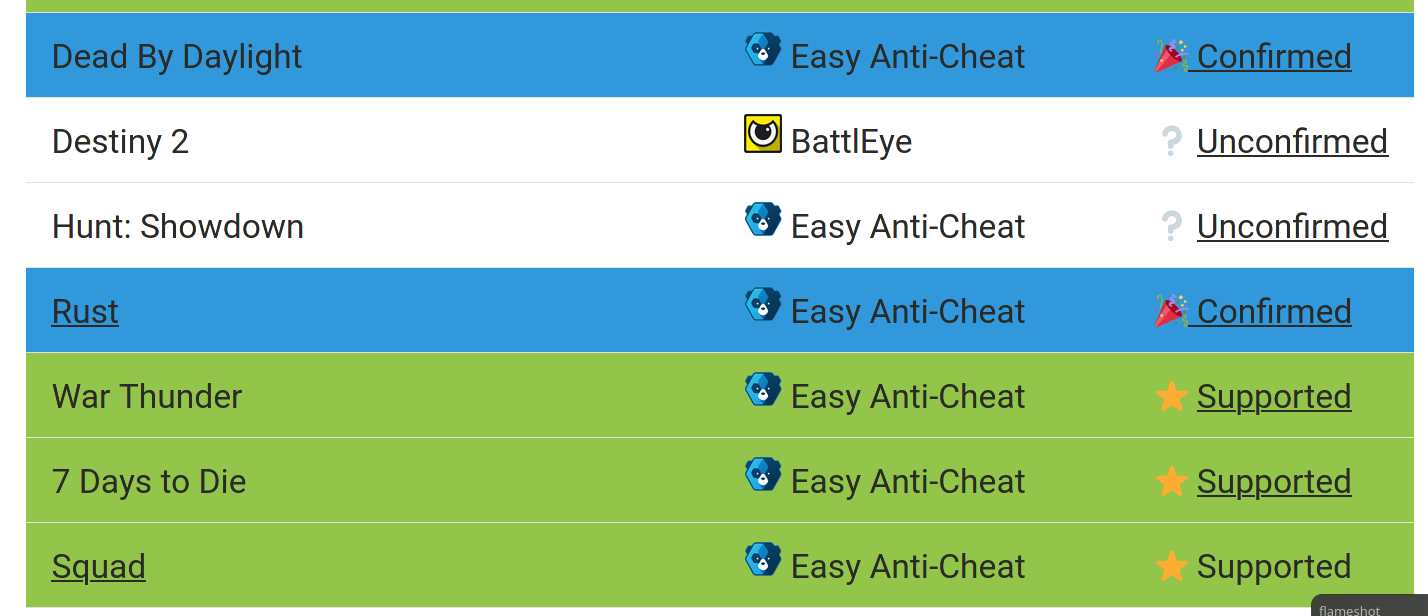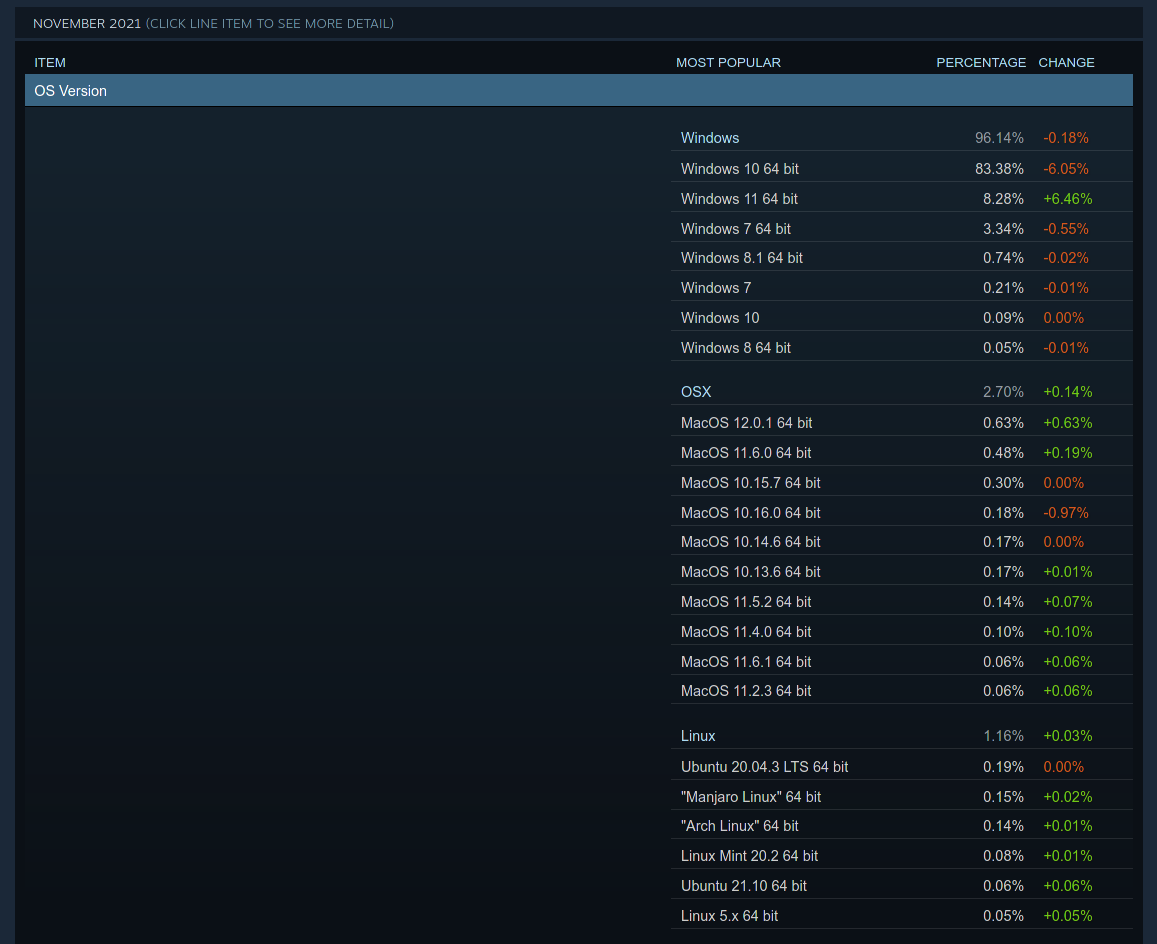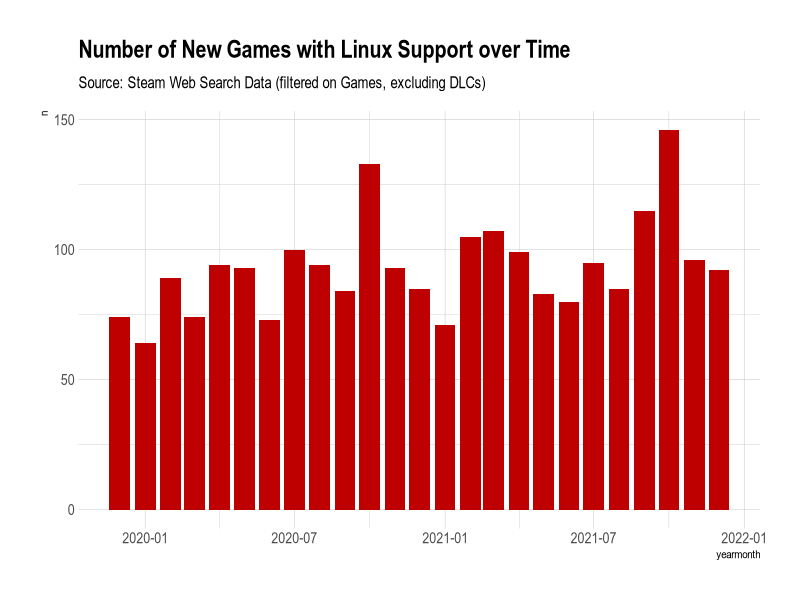Reviewing The Top 7 Linux Gaming Predictions for 2021
We had compiled the following top 7 predictions for 2021 back in February. It’s now the very end of 2021 so let’s see how the predictions did!
All of these predictions were for the year 2021:
- EAC will be supported by Proton
- Wayland will explode
- Linux will Gain Market Share on Steam
- There will be less and less native ports
- New Hardware from Valve / New SteamOS
- Proton’s compatibility will be more visible on Steam
- Steam on ChromeOS leads the growth of Linux
Reviewing each prediction
- EAC will be supported by Proton in 2021
Technically this has become true. EAC has officially announced support in the context of Proton, while more work is needed for every game that wants to cover it. So we are not in a situation where all games using EAC will work tomorrow, but the support is there and official, and some games are already supported or confirmed to have future support.

You can check the situation day by day with areweanticheatyet.com.
- Wayland will explode in 2021
Our prediction was that Wayland would see a major adoption curve in this year, and the metrics speak for themselves:
- With Ubuntu 21.04 codenamed Hirsute Hippo, Ubuntu uses Wayland by default, while still retaining Xorg for backward compatibility.
- Debian Buster (11) runs Wayland by default (at least the GNOME version).
- Since Fedora 34, Fedora uses Wayland by default.
- Since version Leap 15, openSUSE GNOME uses Wayland by default.
- Nvidia started supporting GBM (Generic Buffer Manager) API since 470.x drivers, and added more complete support in the recent 495.29.05 release. For context, Nvidia not supporting this API was a major roadblock for Wayland’s market penetration, and now the road is clear.
Definitely Wayland has crossed a huge milestone in 2021 when it came to adoption, with Nvidia officially supporting it, making it the new standard protocol. X is still going to be around for a long time in any case, so we should not expect it to fade away overnight, but you can now use Wayland as a daily driver with fairly few issues.
- Linux will Gain Market Share on Steam in 2021
While the market share gains (on Steam) where modest, they seem to be real as the share has crossed the bar of 1% for several months now. We typically claim that watching the little ups and down on a single month is kind of meaningless, but a persistent trend over 5, 6 months, certainly means something. We can also assume that the gains will be more consistent as the Steam Deck releases in 2022.

- There will be less and less native ports in 2021
Feels true. Official ports from Feral are now so rare we almost forget about them, and even indie game developers seem to have very little interest in pushing the export button for their Unity builds. There are still native clients here and there for major games (Valheim for example), but it certainly feels like things went downhill after Proton was announced, and even more so in 2021. However, to be sure, we looked at hard data coming from the new titles released over time on Steam. Most of those are indie games, but it does not matter since the prediction was not limited to AAA titles. And the result is pretty clear:

There were actually more games released with a native version in 2021 than in 2020. About 100 more (1170 vs 1070 in 2020). That’s actual numbers, but we also need to factor the number of total games released in that year for a fair comparison. Imagine that there were twice more games released in one year vs the next, it would not be fair to compare absolute values only.
According to Steamspy, there were:
- 10670 games released in 2021
- 9642 games released in 2020
A brief calculation gives us:
- 11.0 % of games released with a native Linux version in 2021
- 11.16 % of games released with a native Linux version in 2020.
It’s close! But percentage-wise, there were actually less Linux ports in this year 2021 compared to 2020. And this, despite the announcement of the Steam Deck (which may have boosted the number of native ports later in the year 2021).
- New Hardware from Valve / New SteamOS in 2021
This came very close to being true, mass-market wise, as the Steam Deck was supposed to be released in December along with the new SteamOS variant. This being said, units are already in the wild in the form of devkits, so while not everyone has access to it yet, the hardware exists and has reached developers at least, along with the new SteamOS version. The prediction was not about it reaching millions of people, but merely existing. It’s achieved.
- Proton’s compatibility will be more visible on Steam in 2021
Valve already has plans to do that with the Steam Verified categories in the upcoming SteamOS versions and updated Steam clients, but it’s a little too early as this will be deployed when the Steam Deck releases (or a bit later). So, not yet, but the plans are there and we know it will be the case in 2022.
- Steam on ChromeOS leads the growth of Linux in 2021
This is probably the “worst” prediction of the bunch. Steam is still not officially released for ChromeOS, despite numerous indications throughout the year that it’s being worked on. So, in effect, it’s not ready yet, and therefore has had no impact on the growth of Linux gaming in 2021.
What does it all mean?
Out of 7, we can consider that 5 came true, with a 6th on its way to becoming true anyway. The ChromeOS situation is still in the air and we have no way of knowing what and when things will happen so far. Still, overall that’s better than sheer luck!
Those were not “our” predictions. These are the top 7 compiled predictions from several actors in the Linux Gaming space. This is something you will see if you ever experiment with such methods: combining the individual predictions of different entities will lead to stronger predictions. If you are familiar with machine learning algorithms, this is analogous to ensemble models giving better results than non-ensemble ones in most cases: combining weak predictors together reduces bias and improves accuracy. When using human predictors you will see it referred as the wisdom of crowds. Of course, this has limits as you can’t really use this to predict tomorrow’s stock market values anyway. But mid-term, macro-level trends? Sure, you can, and you will be better than the average.
And you can therefore expect to see renewed predictions from us (and our partners in this exercise) in early 2022. You can probably expect more bold predictions following the final, highly-expected launch of the Steam Deck on the market, and how things will turn out (how well received will the Deck be, as well as the new SteamOS version).
Stay tuned!
